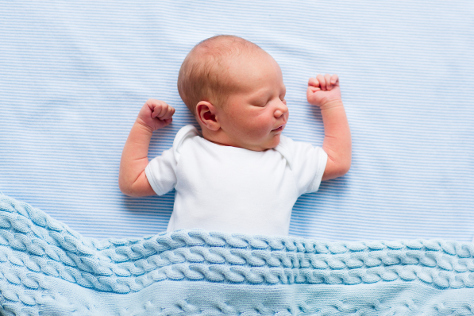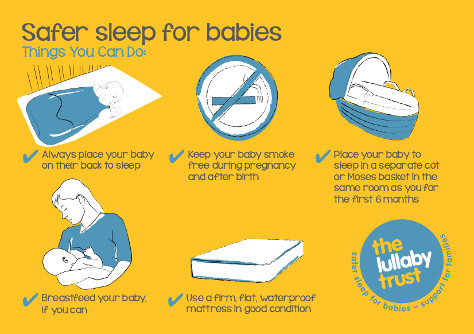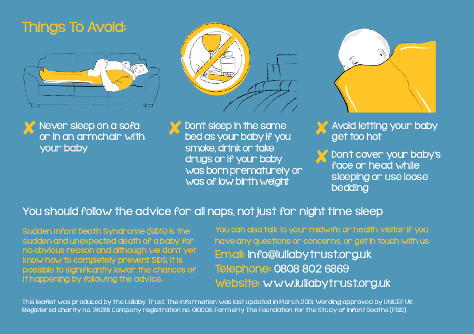Essential safer sleep advice following deaths of eight babies in Essex linked to co-sleeping
Following these deaths, experts on safer sleep share their dos and don’ts on co-sleeping
Dos and don’ts for safer sleep
- Expert advice following babies’ deaths

Safer sleeping is a huge issue for parents with young babies and understanding what is safe and what could potentially put your baby at risk at night is crucial.
Recent figures have highlighted that eight babies who died suddenly in Essex last year, all had co-sleeping with a parent named as a possible reason for their deaths.
The results were issued by the Essex Safeguarding Children Board who revealed that in these eight cases, health visitors had noted that babies were co-sleeping with a parent.
It is difficult to identify co-sleeping for sure as the reason for infant deaths and guidelines on the subject have been inconsistent in the past.
The National Institute for Health and Care Excellence (NICE) updated guidance to clarify the association between co-sleeping and Sudden Infant Death Syndrome (SIDS) in December 2014.
The guidelines state:
There have been long-standing doubts over whether co-sleeping - parents or carers falling asleep with their baby on a bed, sofa or chair - is completely safe.
The updated NICE guidance acknowledges that co-sleeping can be intentional or non-intentional. It advises midwives, health visitors and GPs to recognise this and discuss the issue with parents.
Professor Mark Baker, Director of the NICE Centre for Clinical Practice, said: “For many years, the Department of Health has advised that the safest way for a baby to sleep is on its back, in its own cot or Moses basket in the parents’ room for the first six months. This advice had, and continues to have, a significant effect on reducing baby deaths."
Safer sleep experts, The Lullaby Trust are very clear on the advice they offer on co-sleeping.
The Lullaby Trust‘s Judith Howard has been advising and helping parents who have lost children to sudden infant death syndrome (SIDS) for several years and has said: “Ninety per cent of sudden infant deaths happen in the first six months and we’re now finding that when you get a death in the first month of life, it’s nearly always because the baby has been co-sleeping or bed-sharing with a parent.
“Often the babies who died have overheated, because at that high risk age their thermal regulation system hasn’t fully developed and the baby can’t cool down, and they have either been between two adults or even on the end of the bed with the mother’s arm around them.”
The Lulllaby Trust clearly advises parents to avoid sleeping on a sofa or in an armchair with the baby, sleeping in the same bed as the baby if the parent smokes, has had an alcoholic drink, has taken drugs or is extremely tired. This also applies if the baby was born prematurely or their birth weight was under 5.5lbs.
Below you can see exactly what The Lullaby’s Trust advises as the dos and don’ts of co-sleeping.


The Lullaby Trust's co-sleeping advice
Babies should be slept in a clear sleep space, which is easy to create in a cot or Moses basket.
The Lullaby Trust knows however that families also bed share, and so recommend making your bed a safer place for baby whether you doze off accidentally, or choose to bed share.
The advice on co-sleeping with your baby will tell you how.
For safer co-sleeping:
Keep pillows, sheets, blankets away from your baby or any other items that could obstruct your baby’s breathing or cause them to overheat. A high proportion of infants who die as a result of SIDS are found with their head covered by loose bedding.
Follow all Lullaby Trust safer sleep advice to reduce the risk of SIDS:
- Sleeping baby on their back
- Avoid letting pets or other children in the bed
- Make sure baby won’t fall out of bed or get trapped between the mattress and the wall